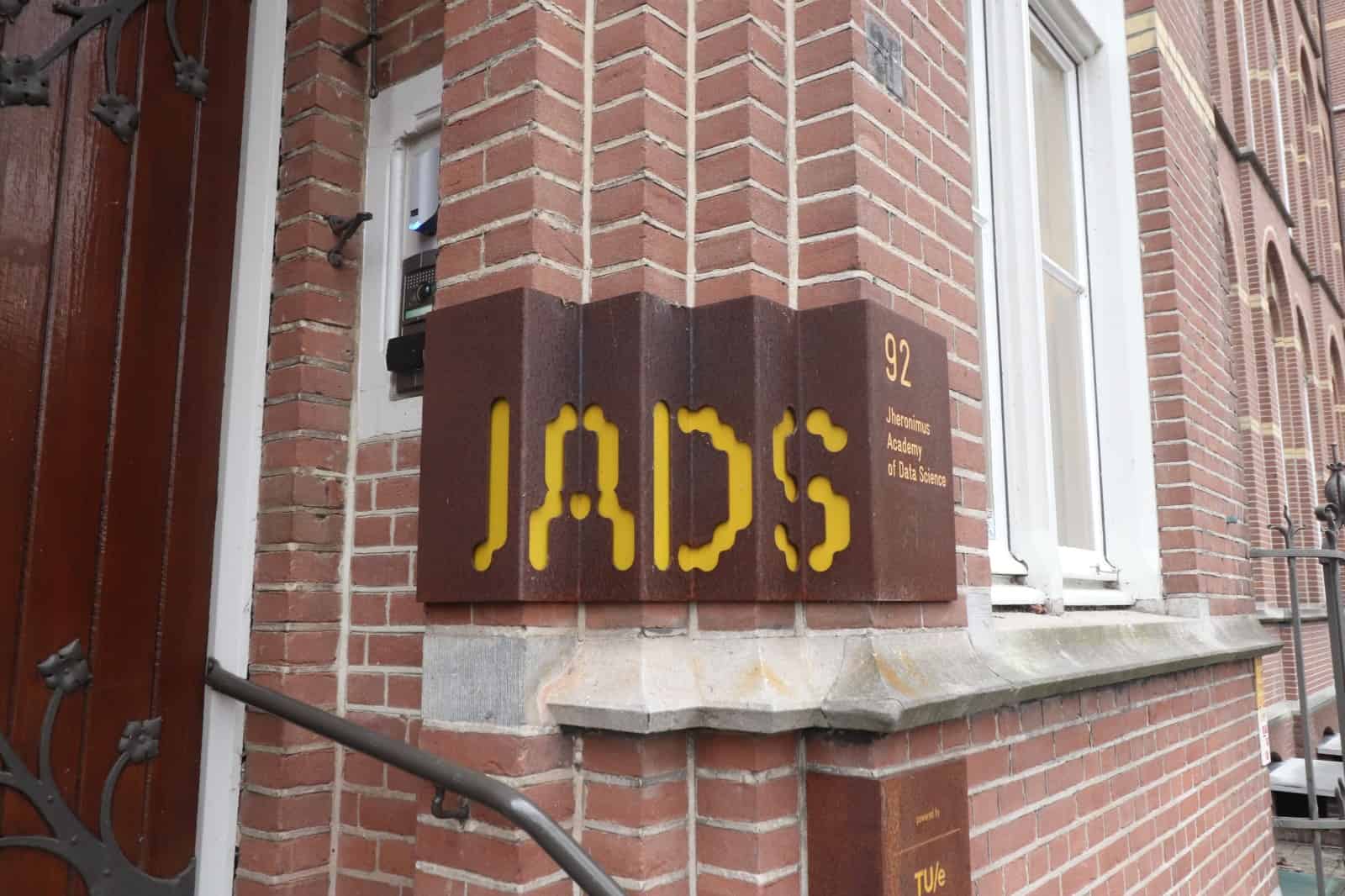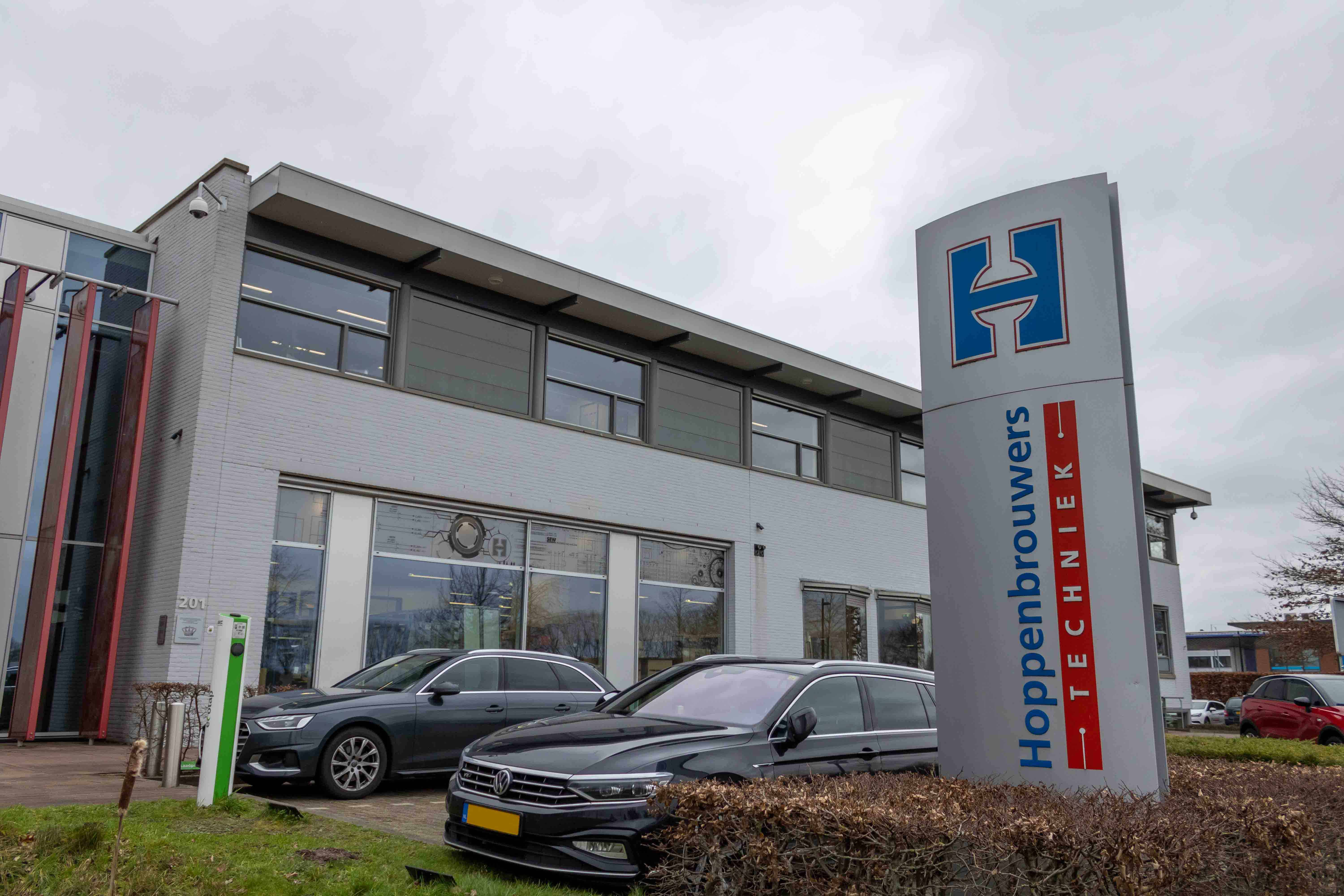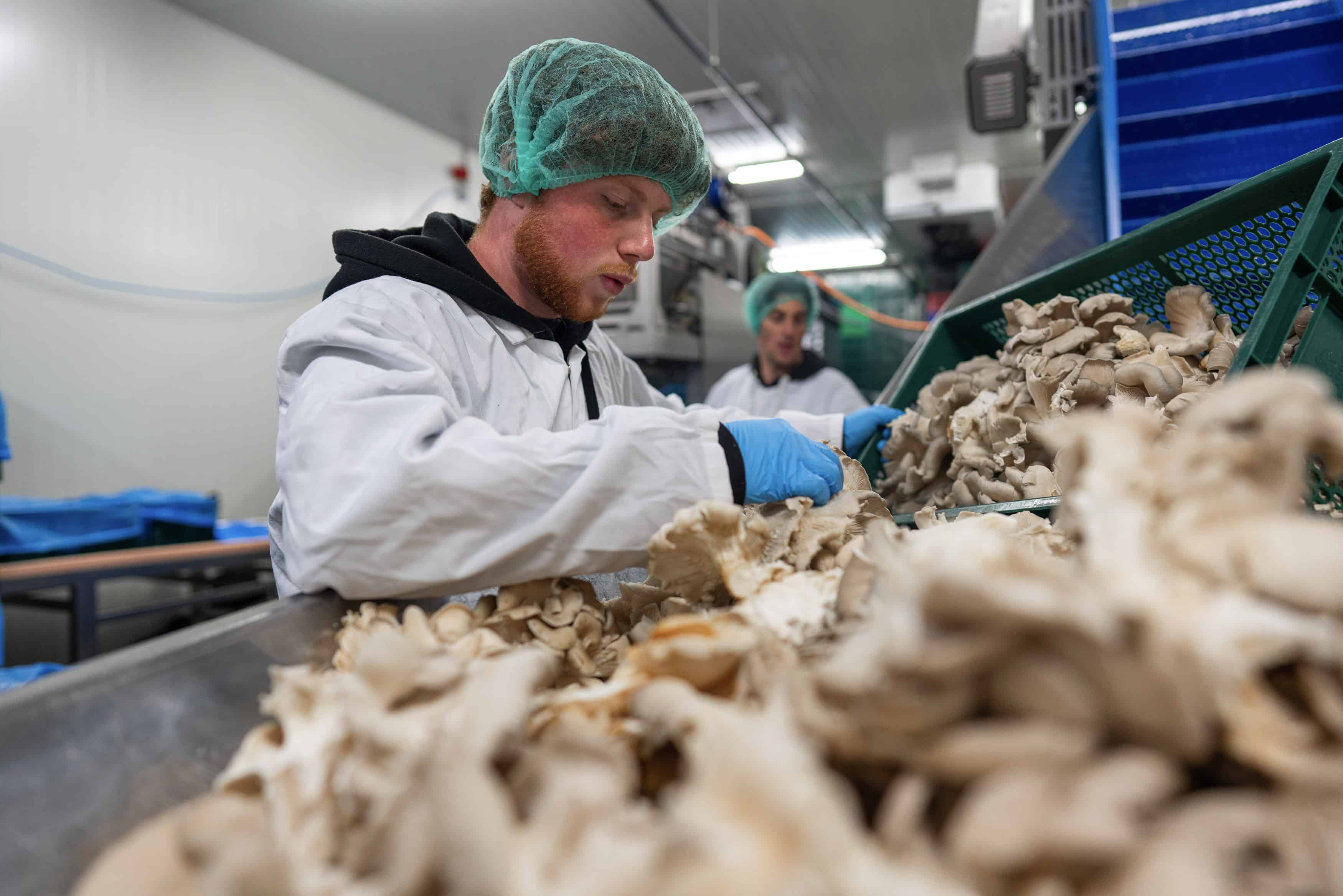
In the Jheronimus Academy of Data Science, Tilburg University and Eindhoven University of Technology join forces by jointly offering courses in the field of data science. Now that seven years have passed, those involved must conclude that things could be better. The seventh story in a series about the Tilburg University region.
“It is becoming increasingly difficult to find a sector in which data is not important,” Jos van Hillegersberg knows. The academic director of the Jheronimus Academy of Data Science (JADS) is in his authentic study in the former Mariënburg monastery in Den Bosch. “In the food chain, in the media, in logistics, in healthcare; you see more and more that people want to work in a data-driven way. In science, we used to just do a survey, an experiment, or a test. Now you see that that is no longer good enough. Everyone wants to continuously measure everything.”
That thought seems to be well ingrained in JADS. Here, students and teachers often work with large amounts of data from companies on social and business engineering challenges. Within JADS, there has been research dedicated to combat the undermining of the port of Rotterdam, there are proposals about making delivery at PostNL more efficient. Also telephone data collected by the police after the murder of Marja Nijholt was studied. Students are also helping smaller SMEs, who, for example, want more customers or cheaper purchases.
And of course, JADS offers a master’s program in Data Science in Business and Entrepreneurship, but also focuses on other forms of education: for example, there is professional education for old hands in the field who want to specialize further, and at JADS there is a two-year “engineering doctorate” program to follow, which prepares students for a career as a technological designer. JADS is also closely associated with the bachelor’s in Data Science, giving the institution practically everything it needs to provide students with a complete academic career in the field of data.
But JADS does not stand alone. On the contrary, even. It is a unique collaboration between Tilburg University and Eindhoven University of Technology. Never before have the two universities worked together at such a high level. “You have the technical knowledge from Eindhoven and the legal and economic knowledge from Tilburg. We try to bring these together in JADS. We do that together with business and government in a very accessible location in the middle of the city,” says Van Hillegersberg.
“The great thing about JADS is also that everything is comparably important. It’s not that we only consider research very important or do education only a little on the side or that we mainly go for education. You do see at many universities that they really specialize in either one of the two,” says Van Hillegersberg. “Here we also do more research in teams, whereas traditional research still tends to be a one-man show, with a small pyramid of people. We participate in the whole scientific story, but we don’t have the ambition to bring in a few Ronaldo’s of science here.”

A threat
JADS is at least somewhat smaller in scale than its parent universities in Tilburg and Eindhoven, but that does not mean that professors and lecturers who teach at JADS value the institute any less. “At the workplace, there is great cooperation between the staff at Tilburg and Eindhoven,” says Arjan van den Born, the previous academic director of JADS from 2015 through 2019. “There is a really nice team with professors who appreciate one another,” Van den Born believes.
Not a bad word about the collaboration has been spoken, as far as Van den Born is concerned. But he did notice that in the boardrooms of the universities, the cooperation was a bit more difficult. “The first three years things really went sky-high with JADS. But then the two universities had a difference of opinion. Tilburg University thought maybe JADS could become their new science faculty, while the Eindhoven University of Technology thought: will JADS maybe become a threat to what we are already doing in the field of data? JADS should remain small. We’re fine with 300 students, but that’s about it”, Van den Born says.
Van den Born also got the impression that, while the universities wanted to work together, they were conservative when it came to their own specialties. “I really had to look for an area in which JADS was allowed to excel. For example, if we proposed to do more in the area of AI in jurisprudence, the law faculty of Tilburg already said that was their area and that JADS was not allowed to grow in that field. If we moved more towards the technical side of AI, they would say that was their field as well. I had to find a niche that didn’t threaten any faculty. That was almost impossible,” Van den Born recalls.
Meanwhile, getting enough staff to the campus in Den Bosch wasn’t always easy for Van den Born either. “I always wanted to put a kind of basic quantity of professors there and supplement that with incoming staff from Tilburg and Eindhoven, but the two parent universities actually preferred us to lean mainly on incoming staff. I found that difficult because I really wanted to build a community at JADS. A mixed model did emerge then, but I would have liked to have many more people there permanently on campus.”

A certain suspicion
Do they recognize that picture in the boardrooms? Lex Meijdam, dean of the Faculty of Economics and Management at Tilburg University until the end of last year, believes that the cooperation went well. His faculty is one of four faculties making decisions about JADS. “The cooperation actually goes very well and has always been good. It is not always easy because with two universities you have to deal with different administrative systems. Problems arise that have to be solved. But the administrative cooperation, certainly between the four faculties, has always been good.”
And also his colleague Ingrid Heynderickx, dean of the faculty of Industrial Engineering and Innovation Sciences at Eindhoven University of Technology, thinks the relationship was mainly good. “The intention to make it a nice cooperation has always been good from both sides,” Heynderickx writes in an e-mail. ‘Problems such as the different ways of working, different ways of assessing teaching and staff and getting the cooperation financially healthy will only be solved if the different parties are willing to cooperate in a joint solution.’
In 2019, however, a report by consulting firm Berenschot shows that the cooperation is really not ideal. ‘We see that the cooperation between the four parties (the universities, the province, and the municipality of Den Bosch, ed.) is not running smoothly everywhere,’ the firm observed after conducting interviews. ‘On the side of the universities, the picture is that relatively little extra is organized internally for JADS to be successful. It seems more like JADS is standing alongside the universities instead of the universities supporting and allowing JADS to excel by adapting the internal organization,’ the consultants write.
‘For JADS it is also important that scientists can commit themselves more to JADS and not literally and figuratively fly in and out. Other parties do not explicitly name this ambition and there seems to be some reluctance to give JADS that space,’ the Berenschot report also shows. ‘At the same time, partly because the Eindhoven University of Technology is committed to its own spearheads, there is no incentive to give sufficient dedicated attention to JADS. For Tilburg University the data science proposition is enriching, at the same time it is also viewed with a certain suspicion, and competition is felt, especially within the faculties.’
Neither parent university wants to say anything about those specific observations. In a joint response, however, they have stated that, as far as they are concerned, improvements have been made. Based on the findings, a number of actions have been taken, such as setting up better lines of communication between all parties involved, establishing common rules for the way the two universities work, and establishing links between the support services of the two universities and JADS Den Bosch.
Tilburg University and the Eindhoven University of Technology also express that they do take pride in what has been achieved within JADS. ‘We see that there is enormous demand for JADS’ research and graduates, and the institute meets a growing need of organizations in our province and beyond.’ The new board will shape the further development of JADS.’

Domestic competition
Jos van Hillegersberg acknowledges that JADS is currently under the boards of the universities. “But I do think JADS would be more vulnerable if you set it up completely independently. You do have two very strong parents now who can support us. They did plenty of that in the beginning, otherwise, there would never have been so much down in the first seven years. Of course, you can build a lot on what is already available in Tilburg and Eindhoven in terms of knowledge, exam regulations, and connections. We are now going to look at how we can organize JADS more independently without losing the involvement of the universities because we do think they are very important.”
And those two universities are precisely what is needed if JADS is to compete with all the new data-related courses coming onto the market. “We were once the only course that bundled data science with entrepreneurship. Now you see that there are more and more courses like that. The confusing thing for students is that all the courses are called ‘something’ with data science or AI. That makes it harder to get students to come here. We need to explain much more clearly what makes our program unique,” said Van Hillegersberg.
“Eventually you see the market maturing and every university in the Netherlands is going to put up a program. That may ultimately be beneficial, especially for the government, because after all, we as a sector can then more easily bring plans to their attention. But we in Den Bosch must have some kind of profile. That if you say you took a course at JADS, everyone knows that you know about the legal-financial side or the industrial-technical side. That’s where we have to go. But we are all still young and all still growing,” Van Hillegersberg also thinks.
Regardless, the next five years will be very different for JADS than the past five. “We now work with labs. In such a lab, a group of researchers and students work on a particular problem, such as energy transition or explainable AI. In five years, we will have set up more of these,” Van Hillegersberg predicts. “And we want to intensify collaboration with our partners. We want to look for even more close partnerships within our circle of partners. We have already worked with companies that were really close to us and with whom we do a lot together; we would like more of that kind of partnership. I am also confident that that will succeed.”
With JADS, Den Bosch has gotten the university courses the city wanted. Fortunately, the institute is also managing to play an increasingly significant role within the province. But if JADS teaches us anything else, it is that collaborations between universities with totally different track records as well as different backgrounds are far from easy to arrange. And perhaps most of all, it takes time. In the words of author Carel Vosmaer, “Marriage is a school of learning: it is the college of patience.”
This series also appears in Brabants Dagblad and was created with support from the Tilburg Media Fund.







